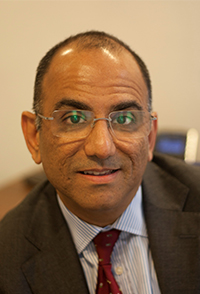
As important as the production of the annual Assessment of Value report is, it’s only true worth is when it becomes deeply embedded in the DNA of the governance of fund management to support greater transparency and ultimately better outcomes for investors, argues Shiv Taneja
Over the years there have been no dearth of attempts to measure value, usually via the less-than-effective measure of past performance, and more recently the inclusion of the hard-to-understand measure of cost. This time around the FCA has quite significantly upped the ante, and while it has been very clear not to be overly prescriptive on how to measure value, it has suggested that in addition to the usual measure of performance and cost, fund managers also consider the following: Quality of Service, Economies of Scale, Comparable Market Rates, Comparable Services and Classes of Units.
Over the past 12 months, fund managers have grappled with a range of issues, including the following:
- How do they make these reports sufficiently detailed and meaningful such that they can be useful for fund managers’ boards, which for the first time have to include at least a couple of independent non-executive directors?
- Equally, how can these reports be made sufficiently engaging for end-investors, the other key recipient group?
- In addition to the seven criteria laid out by the FCA, should they include other value factors, without making the exercise too complicated and onerous?
- Once done, how should these AoV reports be communicated – go big and public, or keep a low profile?
Through my work at Fund Boards Council, I have had a ring-side seat for the past 12 months and a close-up view of how many fund managers have addressed this quite complicated issue. What I have found especially impressive is how seriously many firms have taken the issue of producing a useful AoV report, deployed resources, both internal and external, thinking about what else, if anything, they ought to include, and generally being positive about this fairly onerous regulatory demand, at a time when they’ve got a lot of other things on their collective plates.
And the reason for this, hopefully enduring, positive attitude is neatly laid out in a very readable report released last November by CFA UK entitled Value for Money: A Framework for Assessment, in which it simply states: “The ability of clients to assess VFM (Value for Money) should help increase trust and improve the reputation of the investment industry.” It seems to me that the fund management industry in the UK has finally accepted the fact that it has a significant trust deficit and it doesn’t have a whole lot of time to fix it.
To the excellent analysis by CFA UK (report available here), I would add just one other point. If the fund management industry saw the production of the annual AoV reports as nothing more than a technical exercise that has to be done for the sake of the fund board, so that the directors can sign off on it and then file these reports in a drawer marked “Nothing further needs to be done till next year”, then they are quite significantly missing the point of the FCA’s rationale for making them undergo this exercise.
The truth is that unless the AoV exercise becomes deeply embedded in the DNA of the fund board and especially around the broader issues of governance, transparency and value of fund management in the UK, then attempting to “increase trust” and “improve reputation” will remain hollow words on the page, and the trust deficit the industry faces with its investors will only deepen.

Shiv Taneja is the Founder, CEO of Fund Boards Council, a professional members organisation established for the support, promotion and development of sound fund board governance. He can be contacted at staneja@fundboards.org, and if you’d like to get involved, please visit https://fundboards.org
